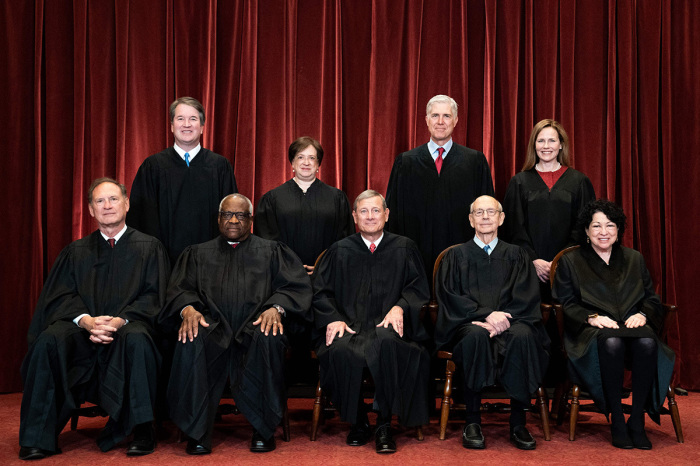3 takeaways from polls on abortion, protests and the 2022 election

Most Americans oppose protests at Supreme Court Justices’ homes
Protesters have gathered outside the homes of the six Republican-appointed justices on the Supreme Court this week after the pro-abortion group Ruth Sent Us announced its intentions to hold rallies outside their homes Wednesday.
The group, named after the late Supreme Court Justice Ruth Bader Ginsburg, released a map last week purporting to show the streets where the justices live in Northern Virginia and Maryland.
A poll conducted by the Trafalgar Group in conjunction with the Convention of States Action released Tuesday asked 1,082 likely voters for their views on the protests and the Biden administration’s response to them. The survey had an error margin of 2.99 percentage points.
The poll, which was conducted from May 6 to May 8, found that the overwhelming majority of Americans (nearly 76%) do not believe that “publishing the home addresses of the five U.S. Supreme Court justices and calling for protests at their private homes is an acceptable way to protest the High Court’s upcoming decision on Roe v. Wade.”
By contrast, nearly 16% of respondents viewed the actions as acceptable.
A majority of Democrats (66%), the group most opposed to the overturning of Roe, oppose the doxing of the Supreme Court justices and the call for protests outside their homes compared to 19% who support the forms of activism.
Nearly all Republicans surveyed (87%) cited the activism as an unacceptable way to protest, while 8% classified the protests and doxing as “acceptable.” Seventy-six percent of those with either no partisan affiliation or affiliated with a minor political party oppose the protests, while 19% support them.
Respondents were asked if they thought that “the Biden administration’s refusal to publicly condemn abortion activists publishing home addresses of U.S. Supreme Court justices and calling for protests at their private homes will encourage or discourage protests to become potentially unlawful or violent."
About half (52%) of respondents predicted that the administration’s response would “encourage protests to become unlawful or violent” and 28% maintained that the response would have “no impact on protests.” Ten percent said that the response would “discourage” violent protests.
Among Democrats, nearly 28% indicated that President Joe Biden’s response to the protests would encourage violence or unlawfulness, followed by 39% who thought his response would make no difference in what happens at the demonstrations. About 16% believed the president’s reaction to the protests would discourage violence or unlawfulness.
Majorities of independents and minor-party supporters (55%) and Republicans (75%) expressed concern that the administration’s response to the doxing and protests would encourage violence or unlawfulness.
At the same time, 30% of independents and 13% of Republicans told pollsters that the Biden administration’s response would have no impact on the protests. Seven percent of independents and minor-party supporters think that Biden’s reaction to the demonstrations would discourage violence or unlawfulness. Six percent of Republicans said the same.
Critics of the protests outside Supreme Court justices’ homes insist that such activism violates federal law.
Title 18, Section 1507 of the U.S. Code proclaims that anyone who has the intent of “interfering with, obstructing, or impeding the administration of justice” or “influencing any judge, juror, witness, or court officer” by “picket[ing] or parad[ing] in or near a building housing a court of the United States, or in or near a building or residence occupied or used by such judge, juror, witness, or court officer” will find themselves subject to a fine or imprisonment for up to one year.
Ryan Foley is a reporter for The Christian Post. He can be reached at: [email protected]




























